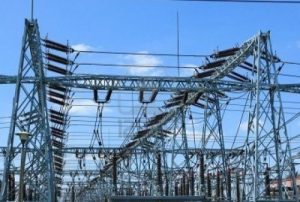 Electricity consumers across Nigeria are voicing their dissatisfaction with the services provided by electricity distribution companies (DisCos), citing exploitation and poor service quality as major concerns.
Electricity consumers across Nigeria are voicing their dissatisfaction with the services provided by electricity distribution companies (DisCos), citing exploitation and poor service quality as major concerns.
Many consumers report issues such as delays in obtaining prepaid meters, requests for bribes, and illegal disconnections. A senior staff member of the Abuja Electricity Distribution Company (AEDC), who requested anonymity, described the customer service in the Bwari Area Council as inadequate. “The customer service here is not friendly at all. They extort customers at will,” the source said.
The source also highlighted that proper verification procedures for meter installations are frequently overlooked, leading to further dissatisfaction among consumers. The Licensed Electrical Contractors Association of Nigeria is responsible for inspecting homes for meter installations, but this process is often ignored, contributing to extortion and poor service.
Disconnection Issues
The anonymous official pointed out that it is illegal to disconnect customers with prepaid meters; however, several communities, including Kogo 1, Barangoni, and Tunduwada, have faced disconnections without prior notice. In response to resident protests, police were reportedly called in to disperse demonstrators.
One customer at the AEDC office in Bwari shared his frustration regarding meter delays, stating, “I applied for a meter in March, but now they tell me my form cannot be traced.”
Widespread Discontent
The complaints are not limited to Abuja. Residents across Nigeria are confronting similar challenges, particularly with estimated billing practices. The Nigerian Electricity Regulatory Commission (NERC) recently fined all 11 DisCos a total of N9.11 billion for overbilling customers.
In Samaru-Kataf Community in Kaduna State, residents have expressed anger over persistent power outages, which have severely disrupted local businesses. La’ah Dauda, a community member, explained, “The power supply has not been stable. We pay fixed electricity bills of 8,000 naira and above, yet we don’t have meters. It is unfair.”
Accumulating Bills
Residents fear that despite ongoing power outages, electricity bills will continue to accumulate. “We will still receive bills and be forced to pay for services not rendered,” Dauda lamented. The community, primarily made up of farming families, is also struggling with exorbitant bills, urging authorities to intervene.
They are demanding immediate action from the Kaduna Electricity Distribution Company to restore power and address the issues of estimated billing.
NERC’s recent order indicated that DisCos could face penalties for failing to provide services on Band A feeders for two consecutive days. In September 2024, the fines for overbilling were detailed, with Abuja Disco fined N1.69 billion, followed by Eko and Ikeja Discos at N1.41 billion each.
Allegations of Extortion
In areas like Bwari, allegations of extortion are rampant, with residents reporting that they have to pay bribes to avoid disconnection. One resident, who wished to remain anonymous, stated, “When AEDC officials come to disconnect us, we often have to pay at least N4,000 just to reconnect.”
In response to these allegations, AEDC’s Head of Marketing, Adefisayo Akinsanya, denied claims of installing fake meters and emphasized that all meters are certified. She urged customers to use official channels for acquiring meters and warned against manipulation, which could incur penalties.
Metering Initiatives
AEDC claims to have recently completed the National Mass Metering Programme, installing over 100,000 meters. Akinsanya noted that the company is working on a comprehensive metering plan to ensure all customers are properly metered, highlighting that the Meter Asset Provider scheme allows customers to pay for meters in installments through energy tokens over ten years.
However, residents of Bwari have raised concerns over their service being abruptly shifted from Band B to Band A, resulting in significantly higher electricity costs. Under Band A, residents are now charged N1,000 for just four units of electricity, which many argue is unfair given the inconsistent supply.
Ongoing Challenges
Despite AEDC’s assurances regarding the new tariff reflecting market realities, residents are skeptical. “We are billed as if we are getting 20 hours of electricity, but we barely get 10 hours supply on some days,” said Chukwuma Okorie, a resident of Kubwa.
AEDC defended the tariff hike as necessary for maintaining the distribution network, stating that the new charges would support infrastructure maintenance and service delivery improvements. The company acknowledged delays in meter supply due to global disruptions but assured customers that efforts are being made to address these issues.
In conclusion, while AEDC encourages customers to report extortion and emphasizes that all payments must go through official channels, the ongoing service failures and mounting frustrations among consumers highlight a pressing need for reform within Nigeria’s electricity distribution sector.

